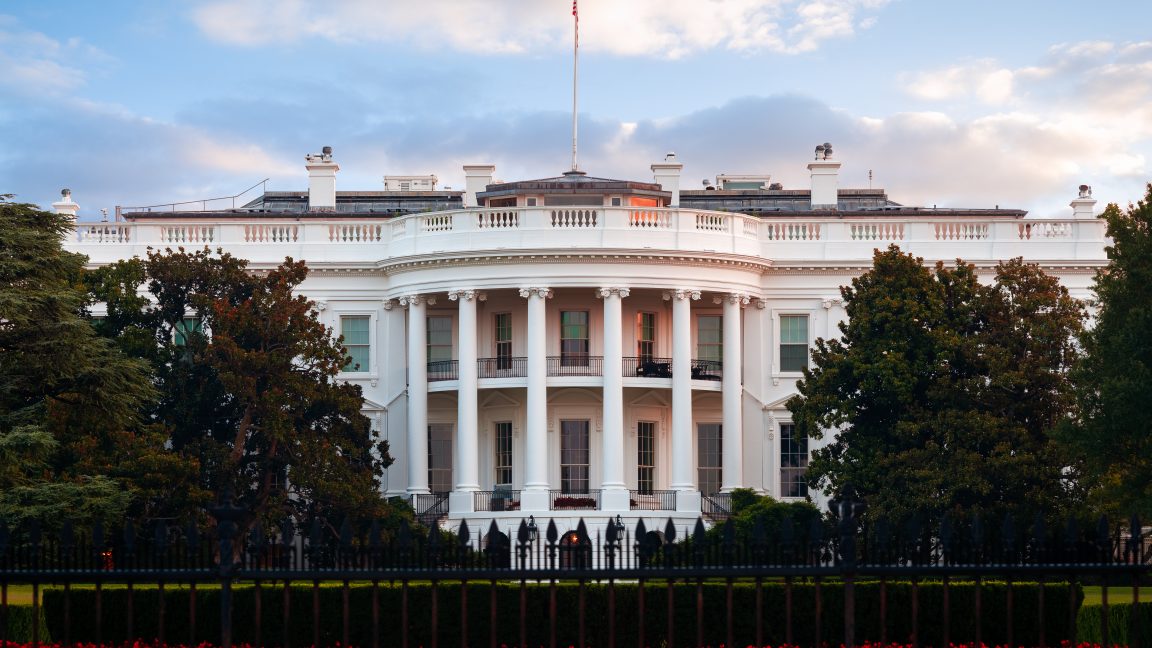
Credit: Joe Daniel Price | Getty Images
On Wednesday, the White House released "Winning the Race: America's AI Action Plan," a 25-page document that outlines the Trump administration's strategy to "maintain unquestioned and unchallenged global technological dominance" in AI through deregulation, infrastructure investment, and international partnerships. But critics are already taking aim at the plan, saying it's doing Big Tech a big favor.
Assistant to the President for Science and Technology Michael J. Kratsios and Special Advisor for AI and Crypto David O. Sacks crafted the plan, which frames AI development as a race the US must win against global competitors, particularly China.
The document describes AI as the catalyst for "an industrial revolution, an information revolution, and a renaissance—all at once." It calls for removing regulatory barriers that the administration says hamper private sector innovation. The plan explicitly reverses several Biden-era policies, including Executive Order 14110 on AI model safety measures, which President Trump rescinded on his first day in office during his second term.
"Whoever has the largest AI ecosystem will set global AI standards and reap broad economic and military benefits," the document states, comparing the current competition to the space race of the 1960s. The plan's three pillars—innovation, infrastructure, and international diplomacy—each include policy recommendations for accelerating AI adoption while preventing countries the Trump administration perceives as adversaries from accessing American technology.
The plan calls for significant changes to how the federal government approaches AI regulation. It directs the Office of Management and Budget to work with federal agencies to identify and revise regulations that "unnecessarily hinder AI development or deployment." The document also instructs the Federal Trade Commission to review all investigations started under the previous administration to ensure they don't "advance theories of liability that unduly burden AI innovation."
Trump’s plan was not welcomed by everyone. J.B. Branch, Big Tech accountability advocate for Public Citizen, in a statement provided to Ars, criticized Trump as giving “sweetheart deals” to tech companies that would cause “electricity bills to rise to subsidize discounted power for massive AI data centers.”
Infrastructure demands and energy requirements
Trump's new AI plan tackles infrastructure head-on, stating that "AI is the first digital service in modern life that challenges America to build vastly greater energy generation than we have today." To meet this demand, it proposes streamlining environmental permitting for data centers through new National Environmental Policy Act (NEPA) exemptions, making federal lands available for construction and modernizing the power grid—all while explicitly rejecting "radical climate dogma and bureaucratic red tape."
The document embraces what it calls a "Build, Baby, Build!" approach—echoing a Trump campaign slogan—and promises to restore semiconductor manufacturing through the CHIPS Program Office, though stripped of "extraneous policy requirements."
On the technology front, the plan directs Commerce to revise NIST's AI Risk Management Framework to "eliminate references to misinformation, Diversity, Equity, and Inclusion, and climate change." Federal procurement would favor AI developers whose systems are "objective and free from top-down ideological bias." The document strongly backs open source AI models and calls for exporting American AI technology to allies while blocking administration-labeled adversaries like China.
Security proposals include high-security military data centers and warnings that advanced AI systems "may pose novel national security risks" in cyberattacks and weapons development.
Critics respond with “People’s AI Action Plan”
Before the White House unveiled its plan, more than 90 organizations launched a competing "People's AI Action Plan" on Tuesday, characterizing the Trump administration's approach as "a massive handout to the tech industry" that prioritizes corporate interests over public welfare. The coalition includes labor unions, environmental justice groups, and consumer protection nonprofits.
"The White House AI Action Plan is written by Big Tech interests invested in advancing AI that's used on us, not by us," said Sarah Myers West and Amba Kak, co-executive directors of the AI Now Institute, which helped organize the statement.
"We can't let Big Tech and Big Oil lobbyists write the rules for AI and our economy at the expense of our freedom and equality, workers and families' well-being, even the air we breathe and the water we drink—all of which are affected by the unrestrained and unaccountable roll-out of AI," the coalition's statement reads.
The coalition's concerns center on several key issues: the environmental impact of data centers, potential job displacement, and the lack of meaningful safety standards. "The rollout of the technology is acting in ways that push down wages, that devalue our work, that are harming our environment and affecting community health," West told The Washington Post.
"Nurses are opposed to our patients being used as guinea pigs for unregulated and untested AI technology," said Cathy Kennedy, RN, National Nurses United president, in the coalition's announcement. "We support AI when it is used to improve our ability to care for our patients, not when it is used by industry to cut labor costs and increase profits at the expense of patients."
The White House dismissed these concerns. "This spirit of fear is exactly how China made significant progress under the Biden Administration," OSTP spokeswoman Victoria LaCivita told The Washington Post. "Artificial intelligence is at the center of our national security and economic interests. Putting America First means ensuring that emerging technologies and innovation can flourish here, at home—not with our foreign adversaries."

-
 C114 Communication Network
C114 Communication Network -
 Communication Home
Communication Home


